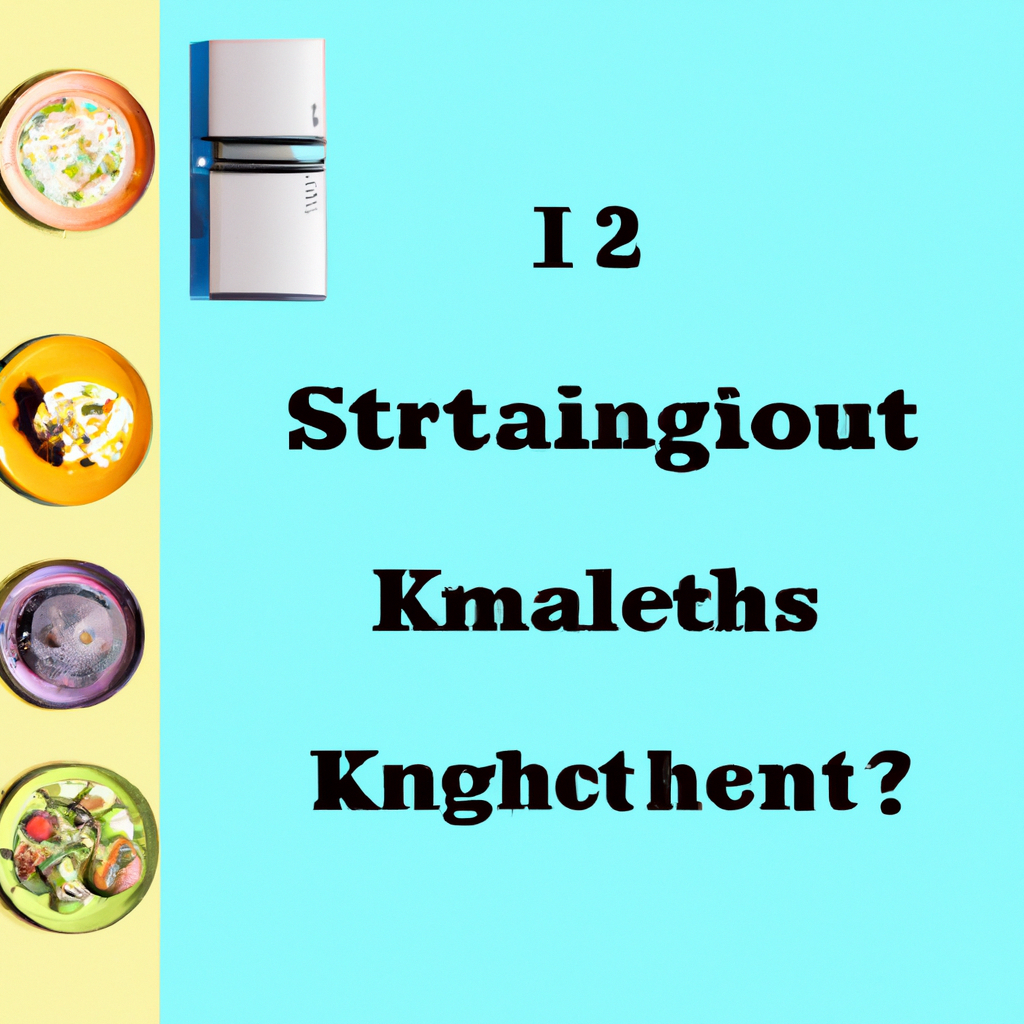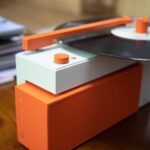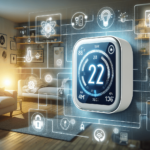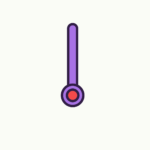Are you someone who has dietary restrictions and is constantly on the lookout for innovative smart kitchen options? Well, you’re in luck! This article explores the exciting realm of smart kitchen technology and how it can cater to the unique needs of individuals with dietary restrictions. From smart appliances that can easily adapt recipes to suit specific dietary needs to smart kitchen assistants that can provide personalized meal recommendations, the world of smart kitchens is evolving to accommodate everyone’s dietary requirements. So, if you’ve ever wondered if there are smart kitchen options tailored to your dietary restrictions, read on to discover the possibilities!

Overview of Smart Kitchen Options
Smart kitchens are revolutionizing the way we cook and eat, and they offer a wide range of benefits for individuals with dietary restrictions. With the integration of technology into our kitchen appliances, gadgets, and systems, the concept of a smart kitchen has gained popularity in recent years. In this article, we will explore the definition of a smart kitchen, the benefits it offers, and how technology is being integrated into our kitchen spaces.
Definition of Smart Kitchen
A smart kitchen is a modern kitchen equipped with appliances and gadgets that utilize advanced technology to enhance cooking and meal preparation. These smart appliances are capable of connecting to the internet, allowing for remote control and automation. They can also collect and analyze data, providing personalized recommendations and making cooking more efficient. From refrigerators that can track inventory to ovens that can be controlled with voice commands, smart kitchens offer a wide range of options to make cooking easier and more tailored to individual dietary needs.
Benefits of Smart Kitchen
Smart kitchens bring a plethora of benefits to individuals with dietary restrictions. Here are some of the key advantages:
Convenience: Smart appliances offer advanced features that simplify cooking tasks, such as preheating the oven remotely or setting timers via smartphone apps. These conveniences make it easier for individuals with dietary restrictions to prepare meals according to their specific needs.
Personalization: Smart kitchen technology allows for personalized meal planning and recipe recommendations based on dietary restrictions. With the help of artificial intelligence and machine learning algorithms, smart appliances can suggest recipes and substitutions that meet specific dietary needs, making it easier to stick to a restrictive diet.
Efficiency: Smart kitchen appliances optimize cooking processes, reducing cooking time and minimizing errors. With features like precise temperature control and automated cooking programs, individuals with dietary restrictions can enjoy more efficient meal preparation and cooking.
Waste Reduction: Smart appliances with inventory-tracking capabilities help prevent food waste by notifying users of expiring or low-stock ingredients. This is particularly beneficial for individuals with dietary restrictions who often rely on specific ingredients and need to ensure their pantry is always well-stocked.
Improved Safety: Smart kitchen gadgets and tools, such as allergy detectors, provide an added layer of safety for individuals with dietary restrictions. These devices can detect allergens and provide notifications or warnings, helping individuals avoid potential allergic reactions.
Integration of Technology in the Kitchen
The integration of technology in the kitchen has significantly enhanced the cooking experience for individuals with dietary restrictions. From appliances to gadgets and tools, various smart solutions are available to cater to different dietary needs. Let’s explore some of the essential smart appliances for dietary restrictions and how they improve the cooking process.

Smart Refrigerators
Smart refrigerators are a game-changer for individuals with dietary restrictions. These high-tech fridges offer advanced features such as inventory management, expiration tracking, and recipe recommendations based on available ingredients. With a smart refrigerator, you can conveniently check the contents of your fridge, make shopping lists, and plan meals that align with your dietary requirements.
Smart Ovens
Gone are the days of manual oven control. Smart ovens give you the ability to control temperature, cooking time, and settings remotely. This is particularly valuable for individuals with dietary restrictions who need precise control over their cooking process. With a smart oven, you can easily avoid undercooked or overcooked meals and achieve consistent results every time.

Smart Blenders
For individuals with dietary restrictions that require specific textures or consistencies in their meals, smart blenders offer a convenient solution. These blenders can be controlled remotely and often come with preset blending programs designed for different dietary needs. Whether you need a smooth puree or a chunky sauce, a smart blender can ensure your meals are blended exactly to your preference.
Smart Air Fryers
Air fryers have become increasingly popular for their ability to cook food with minimal oil, making them an excellent option for individuals with dietary restrictions. Smart air fryers not only offer precise temperature and timing controls but also come with pre-programmed recipes and recommendations tailored to different dietary needs. With a smart air fryer, you can enjoy your favorite crispy snacks in a healthier way.

Smart Grills
For those who prefer outdoor cooking or grilling, smart grills provide a convenient solution. These grills can be controlled via smartphone apps, allowing for precise temperature control and monitoring. Smart grills also offer features like recipe recommendations and cooking timers, ensuring individuals with dietary restrictions can enjoy perfectly grilled meals without worrying about overcooking or undercooking.
Smart Food Scales and Measuring Cups
Accurate measurements are crucial for individuals with dietary restrictions, and smart food scales and measuring cups make the task much easier. These smart devices can connect to recipe applications, syncing the measured amounts directly into your recipe. They also have the ability to track nutritional information, making it simple to calculate your intake and ensure you’re meeting your dietary goals.

Smart Ingredient Substitutors
One of the most significant challenges for individuals with dietary restrictions is finding suitable replacements for restricted ingredients. Smart ingredient substitutors are designed to help with this task. These devices can analyze your recipe and suggest alternative ingredients that meet your dietary requirements. With a smart ingredient substitutor, you can effortlessly adapt recipes while still maintaining the desired taste and texture.
Smart Recipe Applications
Smart recipe applications have become a staple for individuals with dietary restrictions. These apps offer a vast database of recipes tailored to specific dietary needs, ranging from gluten-free to vegan and everything in between. They often provide step-by-step instructions, nutritional information, and the ability to personalize recipes based on your preferences or restrictions. With a smart recipe app, you’ll never run out of ideas for delicious and healthy meals.
Smart Allergy Detectors
Allergies can pose serious risks for individuals with dietary restrictions, and smart allergy detectors provide an extra layer of protection. These devices can detect allergens in food or the environment and provide real-time alerts or warnings. For individuals with severe allergies, having a smart allergy detector in the kitchen can be a lifesaver, ensuring their safety while preparing meals.
Conclusion
Smart kitchen options have the potential to greatly benefit individuals with dietary restrictions. The convenience, personalization, efficiency, waste reduction, and safety features offered by smart appliances, gadgets, and systems make cooking and meal preparation easier and more enjoyable. With technological advancements in food recognition, accessibility considerations, integration with health and fitness tracking, and cost and affordability considerations, the future of smart kitchen technology for individuals with dietary restrictions looks promising. Embracing smart kitchen solutions can make a significant positive impact on the lives of those with dietary restrictions, allowing them to enjoy delicious, healthy meals while effortlessly managing their unique dietary needs.










